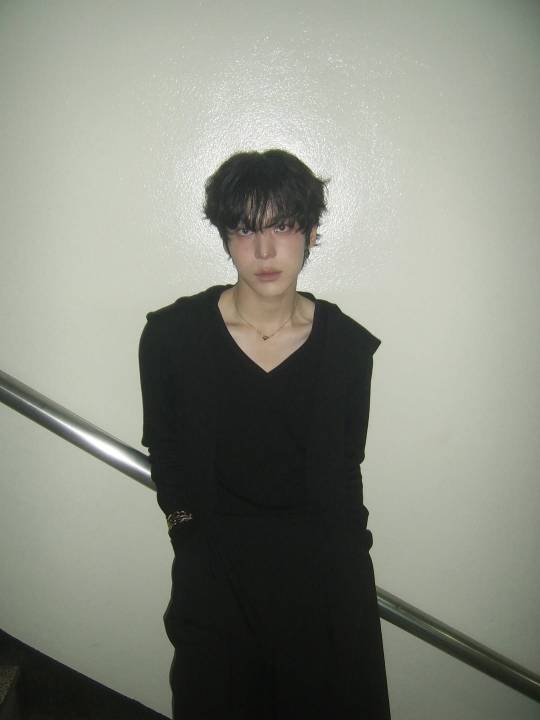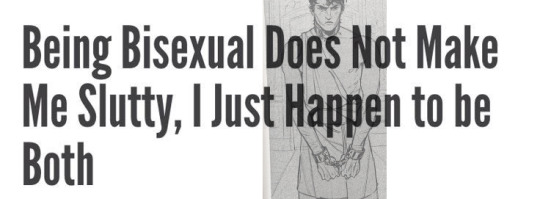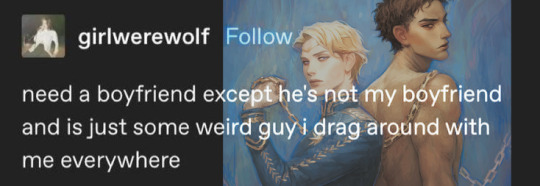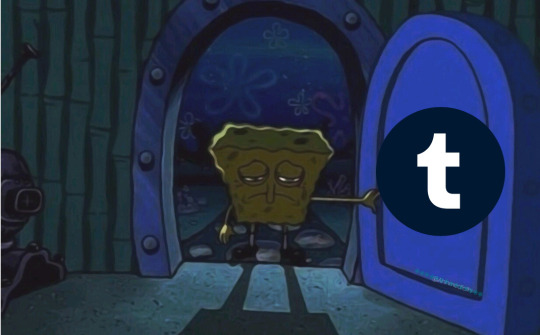24 | she/her I post and reblog (mostly) about languages, BL, MDZS, The Spirealm, Captive Prince, Dark Rise, ATEEZ, Chinese bromances, danmei novels.
Last active 2 hours ago
Don't wanna be here? Send us removal request.
Text

i sweaaaar
Lolane intense care has more screen time than prince Calvin and Jay
23 notes
·
View notes
Text
Lolane intense care has more screen time than prince Calvin and Jay
23 notes
·
View notes
Text


Chakri is just one of us
The Next Prince, Ep 8 (2025)
18 notes
·
View notes
Text


thanks to whoever put them on in this show
10 notes
·
View notes
Text
[📷] KBS Kpop #노포기 Behind Photo
맛있는 음식도 우정도 포기 못해 ꒰ ɞ̴̶̷ ·̮ ɞ̴̶̷ ꒱♡
성화 #우영 #종호 가 친해지고 싶은
선배님들과 함께 해서 행복 두 배❤


39 notes
·
View notes
Text









🌫️ #Yunhois3gram
191 notes
·
View notes
Photo




JONGHO ✧ VOGUE KOREA
245 notes
·
View notes
Text







sry i made like a million of these the other day i see them everywhere
246 notes
·
View notes
Note
so this might be kind of difficult for you since it heavily relies onnyour knowledge of the english terms, forst and foremost, but do you think you could compile a list of LGBTQ related topics, since it is Pride Month after all? honestly there might be some that are either hard to translate and others might be straight up untranslatable (since they'd feel weird if translated) besides the sexualities and gender identities, stuff like bear/twink/pillow princess/top/bottom etc would be make for a very enlightening read if they turn out to have spanish equivalents! i fully understand if thats something you wouldnt want to do for any of the aforementioned reasons, but i figured it wouldnt hurt to ask. and in any case, you might welcome the challenge?
So there are some terms I know, and some I don't - because there are quite a few that are simply loanwords in Spanish like un twink
But I'll include what I know... just know that the default terms like homosexual, heterosexual, bisexual etc are the same in Spanish and English
If I'm missing any that you'd like to know, please let me know. Truly the best ways to find the cutting edge of slang is probably Spanish-speaking Tumblr or Spanish-speaking Reddit, particularly if you're going through Drag Race or some of the Orgullo tags etc.
Wikipedia in Spanish will give you a lot of the basic words though, just not always current slang
To answer your question about top/bottom that one is pretty universal for Spanish:
activo/a = top
pasivo/a = bottom
vers / versátil = versatile [I've heard it can also be called inter for some countries so this might be regional]
The words mean "active" and "passive" in any other situation - like in linguistics, la voz activa/pasiva etc. just in gay sex terms, that's the "top/bottom"
As for other words to know...
gay = gay [note: sometimes it's spelled differently in Spanish, but it's pronounced like English] el / la gay = gay person
lesbiana = lesbian [note: just like English; lesbiano/a can refer to someone from the island of Lesbos] sáfico/a = Sapphic
el orgullo = pride
el desfile = parade
ser de la otra acera = "to play for the other team" [lit. "to be from the other sidewalk", sometimes it's de la acera de enfrente which is "the opposite sidewalk"... not that la otra acera means "the other side/team" in general, so if someone were a double agent or double crossing they could trabajar para la otra acera "to work for the other side"... but in gay terms, la otra acera is a euphemism]
salir del clóset = to come out of the closet salir del armario = to come out of the closet [no difference; some places use el clóset from English; others use el armario which is "armoire" and more French-related... you will see both]
tapado/a = closeted, "not out" [lit. tapado/a means "with a lid on" or "covered", but it means someone who hasn't come out yet and is very common; the other term I've seen is closetero/a which is like "closet case" or "closeted" - but tapado/a is used very often, even more so than closetero/a............. also note that el tapado means something like "a cover-up" so you might see this in other situations; tapar is like "to cover up" or "to block out" which is where this is coming from, and it's often a word used for "to deliberately hide" or "to block out"]
el sexo = sex [the act, and biological sex]
el género = gender [also means "genre" in books"]
asexual = asexual [sometimes people call themselves as which is "ace"; like in cards and in English]
arromántico/a = aromantic, "aro"
transgénero = transgender
el/la trans = trans person una persona trans = a trans person [trans is unisex, and transgénero is
no binario/a = non-binary
Now I need to break up this vocab list to discuss gender neutral things in Spanish. Of course, Spanish is really gendered, and English has more ambiguity. The way that Spanish-speakers prefer to use gender neutral language is by using E instead of A or O
As an example; él "he", and ella "she" are the default pronouns for 3rd person. Gender neutral is elle "they" singular
In plural, that's ellos, ellas, elles with elles being gender neutral plural
What I have noticed as a trend is that people who identify as masculine or feminine will use the standard gender rules for groups of people. That is to say, for plural the standard rule is if it's all women you use feminine plural. If it's mixed, you use masculine plural.
In other words, in a group of all women you'd say nosotras "we" [femininine plural]. In a group of all men, or in a mixed gender group you would say nosotros "we"
For non-binary, the tendency is for non-binary people to use the NB endings in a way that replaces masculine plural. The idea being that they tend to be more aware that there may or may not be other gender neutral people there - so you'd probably see nosotres or if a NB person is talking about a group of people they probably say elles
The gender neutral endings tend to override masculine plural; and so someone who is cisgendered might use NB pronouns with someone NB, but may also decide between NB plural
I'll try and do a larger post on this in the future, but just know NB people in Spanish (at least in the media I've seen) tend to use the E endings in a way that replaces masculine plural, so you'll see nosotres, vosotres, elles, etc.
Moving onto vocab again...
el/la drag queen = drag queen [usually drag queens use feminine gendered articles in drag, but might use masculine outside of drag]
el/la travestí = cross-dresser [the tra is related to trans... and vestí is related to vestir "to dress", so it's someone who dresses up in the clothing of the opposite gender]
el/la transformista = "drag queen" [this might be old-fashioned; el transformismo is a branch of biology in theories of evolution; but transformista meant someone who could change clothes very quickly so you sometimes still see this in theater for special musical numbers like Cinderella etc... so this word CAN be used for drag queens, but people usually say drag or reina de drag etc]
la reina = queen [can be used the way English uses it, both as "drag queen" like reina de drag, or it can be someone effeminate]
el twink = twink
el oso = bear [also just "bear" in a Spanish voice]
el cachorro = cub
la nutria = otter [again, the actual word for "otter" the animal]
For lesbians this is where it gets boring, because the terms butch and femme get used the same as in English
Note: You'll also see the word lésbico/a used for "lesbian" particularly in genres or romances; it's like "Sapphic", and I tend to see it more as a term or category, often for literature or culture not usually used for individuals [though it is also another term for "from Lesbos"]
However, there are additional words to maybe know just in general:
machona = "butch" [from the word macho/a this is "manly", but literally machona means "manly woman" with an augmentative...... so it can be "dyke" in some circles]
marimacho/a = tomboy / "butch" [from María the most default female name in Spanish, and macho/a this can be used to describe a girl who is a "tomboy", but people do use it as "butch" or "dyke" too]
The word for femme is usually femenina or just femme like English, or saying una femme etc.
I don't know if this term applies to lesbians, but there's also afeminado/a which is "effeminate" - usually it's for men, but it means "womanly" or "with feminine characteristics"
And just in case you ever needed to know, the slurs associated with lesbians are usually torta or tortillera... I have mixed feelings about teaching slurs but they do come up so better to be aware of them
The general slur for gay people is marica, though it specifically tends to be used for gay men
This word is a diminutive of the word María - however just know that in some countries, marica is like saying "wow" or "gosh" like an expression of surprise/dismay [particularly Colombia; it's not meant as a slur but it is somewhat impolite]
Note: marica can apply to anyone gay, but specifically gets used for gay men - the big term that you do not want to call someone is maricón which is used for gay men and that's basically the F slur. There are times when gay men will call each other this, but be aware that this is a word that will start a fight if you use it carelessly
-
Also be aware in some contexts people will use the terms raro/a or rarito/a for "queer" - some people find it offensive, others don't. It literally does mean "strange" so when you see "queer" used to mean "odd" in older literature it's fine. It's just with people it can be considered disrespectful, and with some it's not a big deal; just be careful
I would also mention that the terms for "intersex" are usually intersexo or intersexual
49 notes
·
View notes
Text
🕯️🕯️🕯️🕯️🕯️🕯️🕯️🕯️🕯️🕯️🕯️🕯️🕯️🕯️🕯️🕯️🕯️🕯️🕯️🕯️🕯️
🕯️ 𝓗𝓸𝓷𝓰𝓳𝓸𝓸𝓷𝓰 𝓷𝓪𝓴𝓮𝓭 𝓹𝓸𝓸𝓵 𝓹𝓲𝓬𝓼 𝔀𝓲𝓽𝓱 𝓽𝓪𝓽𝓽𝓸𝓸 𝓼𝓱𝓸𝔀𝓲𝓷𝓰 🕯️
🕯️🕯️🕯️🕯️🕯️🕯️🕯️🕯️🕯️🕯️🕯️🕯️🕯️🕯️🕯️🕯️🕯️🕯️🕯️🕯️🕯️
44 notes
·
View notes
Text
Gayteez really is their legacy, uh?🏳🌈🌈
33 notes
·
View notes
Text

65 notes
·
View notes




